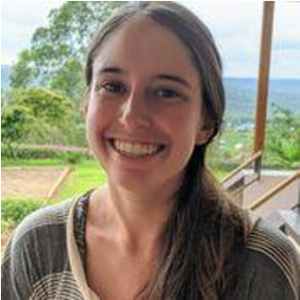 What’s your professional background?
What’s your professional background?
I’m a nurse practitioner. I work as a research fellow in global health equity and type I diabetes with Partners in Health (PIH) in the Non-Communicable Disease (NCD) Synergies Team. Over the past year, I have worked at PIH sites in Malawi and Rwanda collaborating with local NCD teams to manage diabetes and conduct research to improve care delivery systems for diabetes and other complex NCDs.
Before my fellowship with PIH, I completed a dual Family Nurse Practitioner and Masters of Public Health at Johns Hopkins University. I will be going into the second year of my fellowship this fall.
What does your day-to-day work look like? What challenges do you face in your work?
There’s not a lot of space for nurse practitioners in global health, which made working with PIH in Rwanda and Malawi an incredibly unique and exciting opportunity. The clinics in Rwanda are run by specialty-trained nurses that have some supervision from physicians. These physicians come around once a month to consult on complex cases. As a result, Rwandan nurses are essentially functioning as advanced practice nurses would in the United States; they’re prescribing medicines and they’re diagnosing.
In Malawi, I was working with clinical officers, who have about three years of training, and then an intern year. They provide the majority of the care, even in Malawian hospitals, because of physician shortages. Being a nurse practitioner was valuable because I was able to understand the clinician perspective but also draw on key aspects of nursing theory such as patient education, which are critical for managing chronic health conditions such as diabetes.
Coming from American training and then working in Rwanda and Malawi, understanding local guidelines required a learning curve due to differences in availability of certain medications and treatment. Easy access to evidence and best practice guidelines through UpToDate was helpful throughout this process. Whether working with individual patients or refining facility guidelines and protocols, my colleagues and I were grateful to have the ability to verify that the care provided is evidence based.
What makes UpToDate a unique tool for health care delivery?
UpToDate was a huge help to me because it synthesizes evidence, which is especially handy in resource-limited settings. When you’re working and researching in a resource-limited setting and you’re overwhelmed, you just don’t have time to go back to the literature and do a full literature review like you’re often taught to do in school. A trusted resource like UpToDate, where there’s a plain-language synthesis of the evidence, is really helpful.
It’s not just the resources that were limited in Rwanda and Malawi; HR and internet bandwidth are also limited. Even if you don’t have time or you don’t have the internet bandwidth to do a full literature search, every time you have a question, UpToDate can pull together all the helpful information.


